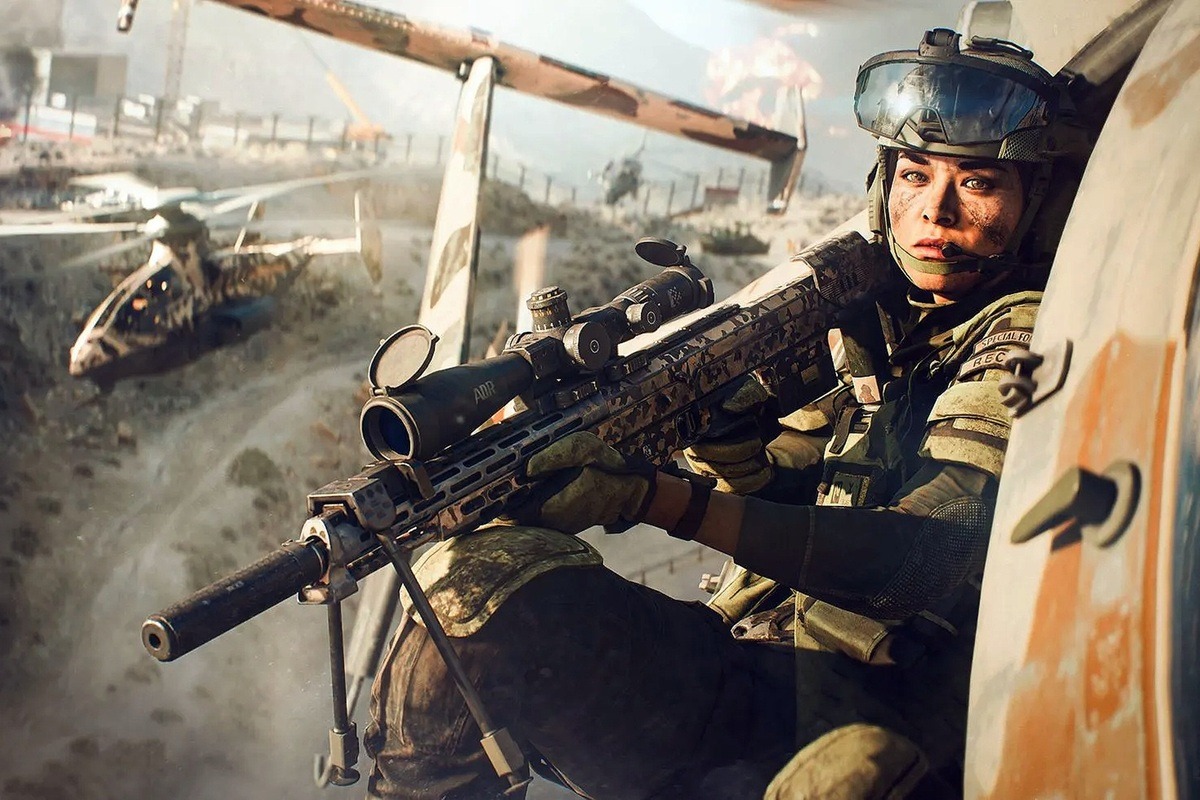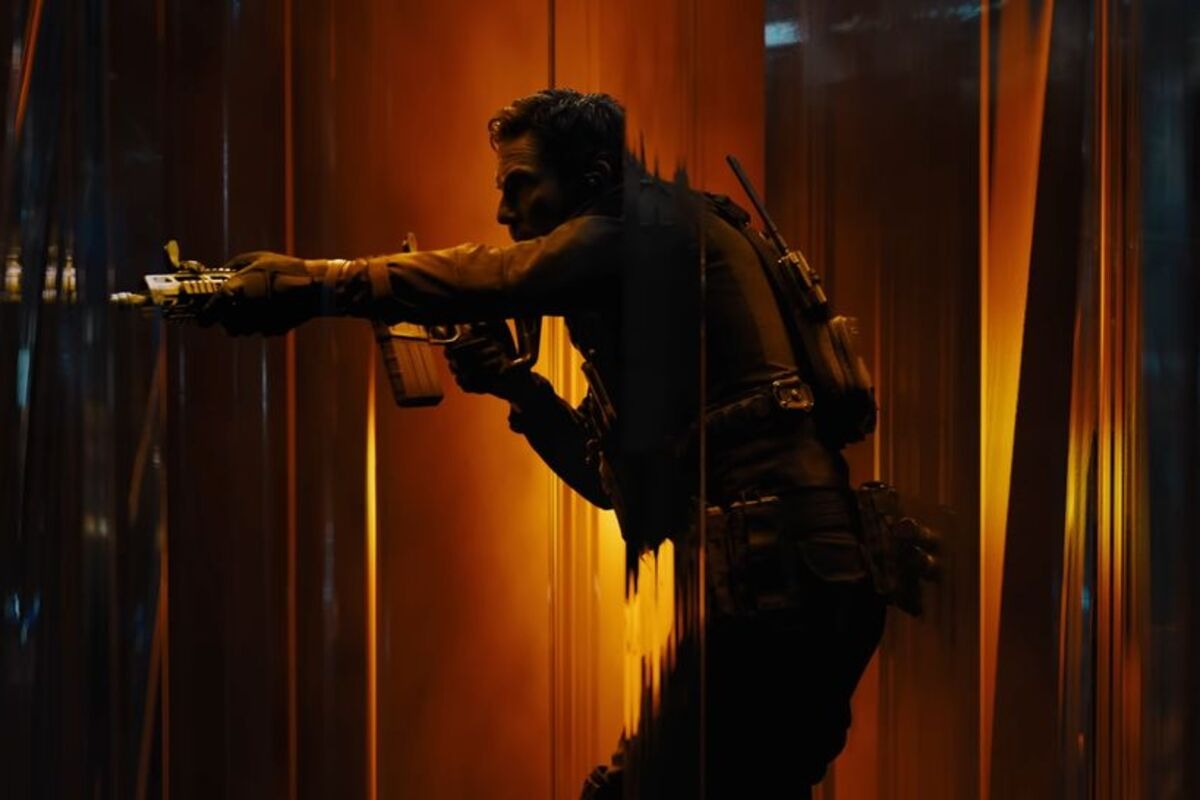
In today’s gaming space, one thing is certain—there is a battle of kings happening right now. The age old debate of FPS titans…Battlefield versus Call of Duty. With the recent release of Battlefield 6, which has created a lot (and we mean a lot) of buzz, and the soon to follow, Call of Duty Black Ops 7, which has just began their open beta, there has never been a more intense comparison between the two first person shooters as there is right now.
This debate is as old as time…well, not really, but it definitely goes back a ways, as far as the advent of FPS video games goes. The rivalry had humble beginnings with Call of Duty typically pointing the way and Battlefield following closely behind. Nonetheless, the grudge match has had its moments and their respective fanbases seeming to be loyal to a fault.
Activision’s Call of Duty has achieved full domination of the FPS space — but success fuels complacency, and the tides of war can turn in an instant. Call of Duty…the untouchable franchise that has been sitting on the FPS throne for over a decade has been embarrassed. We’re not talking about a trip on your shoelace in the hallway embarrassed, we’re talking about standing in front of a crowd of millions with your pants down embarrassed, and Battlefield 6 is the culprit, this article will tell you why. Battlefield is back after a few rough years, and out of the shadows, it has come swinging with a knockout punch that shook the entire FPS scene.
This article will discuss just how serious the damage done to Call of Duty really is, as well as delve into the history, and current rhetoric surrounding the debate. Lastly, we will discuss why this is not just another Battlefield versus Call of Duty debate, this is a straight up turning point in gaming history.
Every great war had to start somewhere so let’s trace this all back to the beginning so as to provide some context as to why passions are so high in today’s gaming age. Battlefield, developed by DICE and published by EA, began in 2002 with Battlefield 1942, earning recognition for its large-scale warfare, vehicles, and destructible environments that encouraged teamwork and strategy. A year later, Activision’s Call of Duty introduced a more cinematic, fast-paced experience focused on tight gunplay and gripping single-player campaigns. As the franchises evolved, Call of Duty became known for its yearly releases and consistent popularity, while Battlefield distinguished itself with realism and massive multiplayer battles.
During the early 2010s, the rivalry hit its peak with Call of Duty: Modern Warfare 2 and Battlefield 3, sparking endless debates among players and critics. Over time, however, Call of Duty pulled ahead in both sales and cultural impact—selling over 400 million copies compared to Battlefields roughly 88 million. While Call of Duty thrived on accessibility and speed, Battlefield catered to players who valued scale and tactical depth. Even so, each new release reignited comparisons between the two giants, keeping the conversation alive.

Battlefield is receiving copious amounts of praise for their decision to get back to the basics, emphasizing their previously utilized model of a large-scale, team-based, first person shooter. After a rough patch with the flop that was their previous release, Battlefield 2042, known for its unfinished look, a dynamic that seemed to emphasize solo play and futuristic feel that simply felt too far off the mark, DICE and publisher, EA decided to take the hint and listen to what the community was saying.
As someone who has played Battlefield religiously since the release of Battlefield 1 in 2016, spending considerable hours playing the following iterations of both Battlefield 5 and Battlefield 2042, I feel qualified to speak on the matter. It truly looks promising that DICE and EA have put together yet another masterpiece of a game with Battlefield 6.
Much of the community will tell you that 2042 and Battlefield 5 both seem to have missed their mark but to me it seems as though that mark was set to be missed when the standards they have created for themselves through the decades have been so incredibly high. Many in the community regard Battlefield 1 as a masterpiece, because it absolutely was, and so how can you recreate that? I believe the answer is time. To me, it seems that Battlefield 5 and Battlefield 2042 were simply stepping stones leading to a knockout punch to do serious, if not course-altering damage to their rival. They saw their opening and they took it…let’s talk about that opening.

On the other side of the coin, CoD, the industry's leading seller for decades, is receiving backlash like never before at the release of their newest game Black Ops 7. It really does feel like the war is over before it even began with two FPS giants, because even though Black Ops 7 is only in its beta phase, the community has begun to tear into the games shortcomings, crying out that “Call of Duty is dead.” But this isn’t just a spur of the moment uprising that the community is up-in-arms over, no, this negative rhetoric has been brewing for years now.
As someone who has played CoD since Call of Duty 3 (2006) and logged hundreds of hours across its biggest titles, I can say this uprising has been long overdue. Many claim the franchise began to decline with Warzone’s release, but I believe the downward spiral started earlier—with Infinite Warfare back in 2016, the same year Battlefield 1 earned widespread praise.
The numbers speak for themselves: Infinite Warfare sold roughly 50% fewer copies at launch than Black Ops III (2015), breaking the series’ long streak of year-over-year growth. Meanwhile, Battlefield 1 dominated sales that year, topping digital charts and reaching an estimated 15–25 million lifetime sales. That contrast wasn’t just about setting—it showed that Call of Duty had grown complacent.
The Infinite Warfare reveal trailer became one of YouTube’s most disliked gaming videos, as fans rejected yet another futuristic, space-based entry after Advanced Warfare and Black Ops III. But what truly damaged trust was its aggressive monetization. The game expanded cosmetic purchases and introduced randomized supply drops containing not just skins but weapon variants with gameplay advantages—effectively turning Call of Duty into a pay-to-win system. That move, more than anything, marked the start of the franchise’s long struggle with player confidence.
The issue reached a head with their 2024 release of Black Ops 6. CoD used to have a distinct identity—gritty, grounded, military realistic. Gradually it has turned into a carnival with skins such as rappers, cartoon characters, unicorn outfits, and rainbow skins with half the lobbies looking like a cosplay convention.

While the backlash toward Call of Duty’s monetization practices has been building for years, Black Ops 7 feels like the culmination of everything the community has feared: another glossy product dressed in nostalgia but hollowed out by profit-driven systems. Early footage and beta reactions suggest that the franchise has learned little from its past mistakes. The store is once again filled with purchasable operator skins, flashy cross-promotions, and tiered battle passes that nickel-and-dime players who already paid full price for the game. In a time when players are begging for innovation and authenticity, Activision seems content to keep recycling the same formula—reskinning old maps, gating cosmetic content, and prioritizing short-term revenue over long-term goodwill.
Meanwhile, Battlefield appears to have learned from its own missteps, returning to its roots with large-scale, teamwork-driven combat and a renewed focus on community feedback, not to mention the game looks fantastic in terms of graphics, mechanics, and overall put-togetherness. The contrast between the two franchises has never been sharper. Where DICE is striving to rebuild trust, Activision seems to be burning what little remains. If Black Ops 7 continues the trend of prioritizing monetization over meaningful gameplay evolution, it may mark a defining moment in the FPS genre—the point where the crown begins to slip.
In the end, the war between Battlefield and Call of Duty has never been about graphics, realism, or even mechanics—it’s about philosophy. One franchise is listening, adapting, and remembering why players fell in love with shooters in the first place. The other is cashing in on loyalty it no longer deserves. Whether Battlefield’s comeback can dethrone Call of Duty for good remains to be seen, but one thing is certain: if Activision doesn’t start valuing players over profit, this war of kings may finally be over—and the throne may not be theirs much longer.